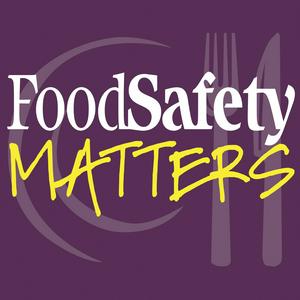Ep. 193. Christian Ararat: A Global Perspective on Auditing, Certifications, AI, and Beyond
Christian Ararat, M.Sc., M.Eng. is a food safety professional with more than ten years of experience in food safety and quality. After earning a bachelor's degree in Food Science from Valley University in Colombia, he began his career in the bakery industry, where he implemented and enforced good manufacturing practices (GMPs) and prerequisite programs. After moving to Canada, Christian joined Natursource Inc., a Montreal-based food manufacturing company dedicated to producing healthy snacks. As head of the Quality Assurance department, Christian implemented the Global Food Safety Initiative (GFSI) SQF food safety system; helped the company to achieve claims such as gluten-free, non-GMO, and Halal; and maintained certifications such as Organic and Kosher. Christian has continued his education and pursued a master's degree in Food Safety and a master's degree in Quality Systems Engineering. Currently, he serves as the Director of Quality and Laboratory at Geloso Beverage Group, the first wine manufacturer in Québec, Canada. In this episode of Food Safety Matters, we speak with Christian [46:53] about: How variances in audit scores can cause issues for food safety professionals Things food and beverage companies should be paying close attention to on their audit results The importance of striving for continuous improvement over a specific audit score, and how this informs food safety culture How traceability is measured on audits and why food and beverage companies should still prioritize traceability, despite the recent 30-month extension of the U.S. Food and Drug Administration’s (FDA’s) Food Traceability Final Rule/FSMA 204 compliance date A $26-million budget cut coming to the Canadian Food Inspection Agency (CFIA) in 2026, and how it could affect CFIA’s surveillance and enforcement work The differences between certified “Organic” criteria required by the U.S. Department of Agriculture (USDA) versus FDA’s Foreign Supplier Verification program (FSVP), and how those differences affect organic food and beverage exporters to the U.S. Limitations imposed by FDA's evaluation protocols for FSVP-registered entities Potential applications of artificial intelligence (AI) that could bolster food safety efforts, as well as possible pitfalls that should be considered when looking to leverage AI for food safety. In this episode, we also interview Joseph Corby [24.26], the recipient of Food Safety Magazine’s 2025 Distinguished Service Award, about his career in food safety and his advocacy for a nationally integrated food safety system. After receiving a degree in Environmental Health, Joseph Corby worked for the New York State Department of Agriculture and Markets for 38 years, beginning as a Food Inspector in 1970 and retiring in 2008 as the Director of the Division of Food Safety and Inspection. He then went on to become the Executive Director of the Association of Food and Drug Officials (AFDO), a role he held for ten years, and is now a Senior Advisor for AFDO. Joseph has served as an Instructor for the U.S. Food and Drug Administration (FDA), AFDO, the International Food Protection Training Institute (IFPTI), Louisiana State University, the National Environmental Health Association (NEHA), the University of Tennessee, and Oregon State University. He continues to be an outspoken advocate for the advancement of a nationally integrated food safety system and works with numerous groups and associations in support of this cause. News and Resources News USDA Withdraws Proposed Regulatory Framework for Salmonella in Poultry After Years of Development FDA Announces Plan to Phase Out Synthetic, Petroleum-Based Food Dyes From U.S. Food Supply Rumored FDA Budget Proposal Would Cut Funding, Move Routine Food Inspections to States FDA Reportedly Reinstating Some Fired Food Safety Scientists, Inspection Support Staff FDA Testing Finds Bottled Water Samples Do Not Exceed EPA Limits for PFAS in Drinking WaterResearchers Develop Nanocage-Based Filter That Removes 90 Percent of PFAS From Groundwater Resources “Is AI 'Food Safe?'” by Christian Ararat, M.Sc., M.Eng. for Food Safety MagazineJoseph Corby to be Honored with Food Safety Magazine's 2025 Distinguished Service Award Sponsored by: Hygiena We Want to Hear from You! Please send us your questions and suggestions to
[email protected]